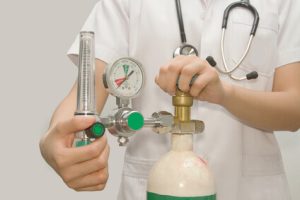Laparoscopic hernia surgery is a minimally invasive procedure that is performed under general anesthesia. Laparoscopic hernia surgery is different from open surgery:
- In laparoscopic repair, there are several small incisions instead of a single larger cut.
- For the patients who have hernia on both sides, it can be done at the same time without making extra cut. A mesh is placed at the weak areas to strengthen it and prevent hernia from recurring in the same place or a different spot.
- Laparoscopic hernia surgery is done under general anesthesia. Open hernia surgery is done under general, spinal, or local anesthesia.

Table of Contents
Here are the top 5 things to know after laparoscopic hernia repair:
-
Diet
The instructions on your diet after hernia surgery are as follows:
- Keep it light: eat small meals and liquids on the first day after the surgery. Gradually return to normal diet. You may feel nausea and vomiting which is a common after effect of anesthesia and is temporary. Avoid smoking and alcohol as it can worsen the condition.
- Eat fiber-rich food and drink a lot of water to prevent constipation and straining during bowel movements. If you face any irregularity in your bowel movements, talk to the doctor about stool softeners or laxatives.
2 – Activities
You may resume your normal routine after the day of the surgery except for lifting heavy weights or straining your abdomen. It is better to consult a doctor before you decide to indulge yourself in activities such as driving, swimming or intercourse.
Also read: Heart Surgeon
If any of this activity hurts, it means you are not ready for it. Following the below guidelines may help you in long term results:
- No exertion
- Do not lift heavy weights
- It is good to take rest, at the same time it is also important to get up and move.
- No strenuous exercise
- If you feel the effect of anesthesia within 24 hours of the surgery, avoid making any decisions or driving.
3. Pain and discomfort
The pain after surgery is very less in case of laparoscopic repair in comparison to traditional surgery. You may experience slight pain at the incision sight of the hernia but it does not last long.
Some males may experience discomfort due to swelling at the scrotum. Ice packs or medication can provide relief from this discomfort and will go away with time. If the pain and discomfort do not go away even after the medication, contact your healthcare provider.
4. Incision care
Before you get discharged from the hospital, your surgeon will provide you all the necessary instructions to take care of your incisions and how to change the band-aids. You may be able to take a shower after 24-36 hours after your surgery if everything goes well. Laparoscopic hernia incisions are easy to handle as they do not bleed usually.
Covering the incisions after 2-3 days is not necessary but is usually comfortable. Slight discoloration around the incision is normal so do not panic. If you notice and bleeding and discomfort, contact them to confirm it is not serious.
5. Follow up
Take a follow-up to check for your recovery. Remember to contact the doctor if you notice anything like
- Significant bleeding
- Difficulty breathing
- Persistent light-headedness
- Chills and/or fever greater than 101°F
- Pus or infection at the incisions
- Inability to pass urine
- Severe pain
Can hernia be a medical emergency?
Hernia bulge sometimes goes away on its own when you lay down or push them. For some, it cannot be pushed back. If the protruding hernia is left untreated it may be a medical emergency when the intestine gets trapped or strangulated, cutting off the blood supply.
The situation can be life-threatening that requires immediate surgical removal of the affected intestine.
The symptoms of a hernia that needs emergency treatment include:
- Severe pain and swelling at the hernia site
- Bulge keeps growing
- Nausea and vomiting
- Bloating and/or constipation
- Chill or fever
Take away
Get laparoscopic surgery to treat hernia. The reason why people opt for the laparoscopic procedure is less postoperative complications and easy after-care. Patients can resume their normal routine quickly. If you follow the post-surgery instructions as per the provider, the healing becomes quick and easy. All you need to do is book follow-up appointment 1 or 2 weeks after surgery to ensure that pain is well controlled and there are no infections.


